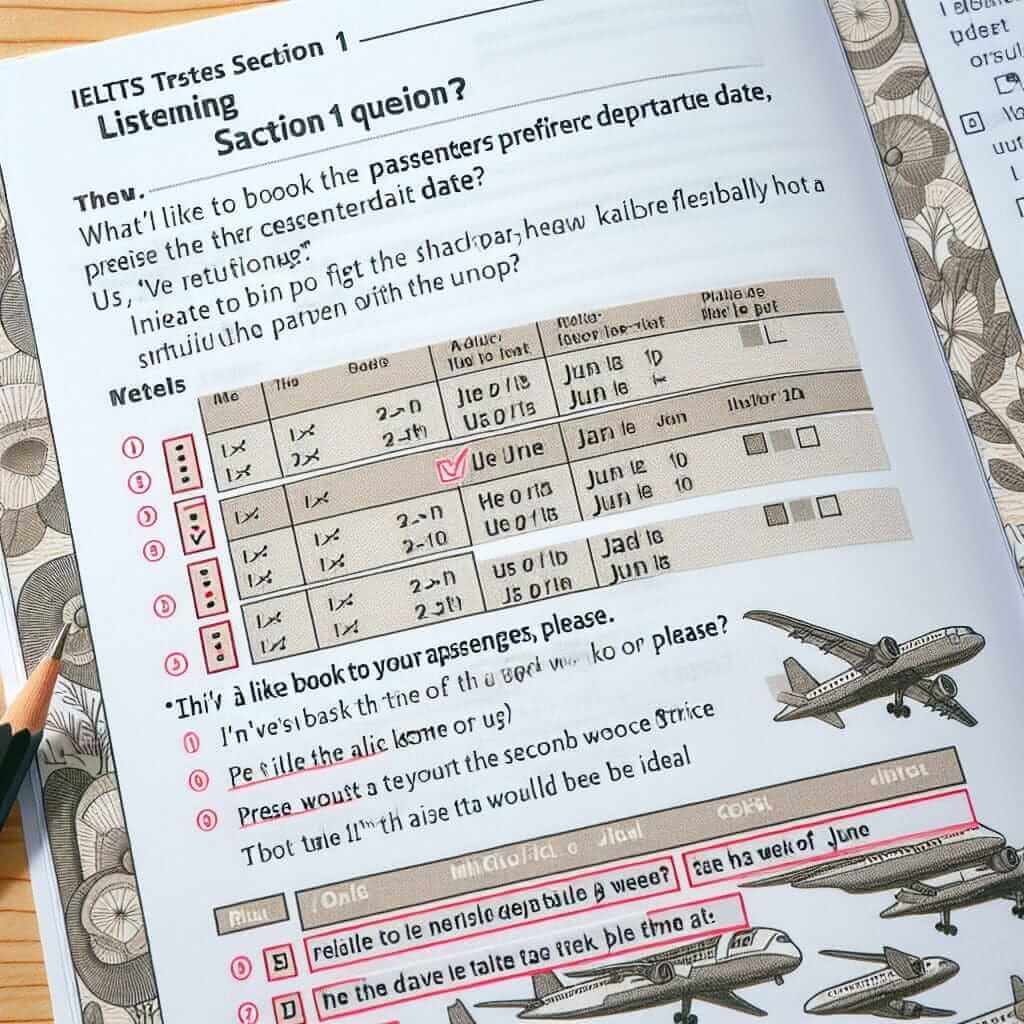As an IELTS instructor with over two decades of experience, I’ve witnessed countless students grapple with the Listening section, particularly Section 1. This initial hurdle often sets the tone for the entire listening test, making it crucial to master. This comprehensive guide will delve into proven strategies and insights to help you ace IELTS Listening Section 1.
Understanding IELTS Listening Section 1
Section 1 focuses on everyday social situations, typically a conversation between two speakers. You’ll encounter scenarios like booking a hotel room, inquiring about a course, or planning a trip. This section assesses your ability to comprehend factual information, such as names, numbers, and times.
Effective Strategies for IELTS Listening Section 1
1. Previewing is Key
- Utilize the Preparation Time: Before the recording begins, you’ll have some time to preview the questions. Use this time wisely to:
- Identify the Question Types: Are they multiple choice, sentence completion, or notes/form/table completion?
- Underline Keywords: Circle key nouns, verbs, and any numbers mentioned in the questions.
- Predict Answers: Try to anticipate possible answers based on the context of the questions and any visual aids provided.
2. Active Listening is Crucial
- Focus on the Entire Conversation: Avoid getting sidetracked by unfamiliar words. Concentrate on the overall meaning and the specific information being asked.
- Listen for Synonyms and Paraphrasing: The speakers might use different words or phrases than those in the questions. Be prepared for this and stay alert.
- Pay Attention to Signposting Language: Listen for words and phrases like “firstly,” “next,” “finally,” and “on the other hand.” These indicate the flow of information and can help you stay on track.
3. Develop Your Note-Taking Skills
- Use Abbreviations and Symbols: Develop a system that works for you to quickly jot down essential information.
- Focus on Key Details: Don’t try to write down every single word. Prioritize names, dates, times, and any specific instructions.
- Write Legibly: You’ll need to refer back to your notes, so ensure they are clear and organized.
Illustrative Examples from Real IELTS Tests
Let’s analyze a sample question from a past IELTS Listening Section 1:
Question Type: Form Completion
Situation: A customer calling a travel agency to book a flight.
Question: What is the customer’s preferred departure date?
Audio Script Excerpt:
Customer: “I’d like to book a flight to Paris, please. Preferably around the second week of June. The 12th or 13th would be ideal.”
Analysis:
By underlining the keywords “departure date” in the question and listening attentively, you’d identify the customer’s preference for “the 12th or 13th.”
Essential Tips for Success
- Practice Regularly: Familiarize yourself with different accents and the pace of the IELTS Listening test by practicing with past papers and online resources.
- Enhance Your Vocabulary: A strong vocabulary will help you understand the conversations and identify synonyms.
- Stay Calm and Focused: Don’t panic if you miss an answer. Move on to the next question and try to catch up later.
- Review Your Answers: If time permits, double-check your answers for any errors or omissions.
Conclusion
Mastering IELTS Listening Section 1 requires a combination of focused preparation, active listening, and effective note-taking skills. By consistently applying the strategies outlined in this guide and practicing regularly, you can build your confidence and achieve your desired score. Remember, consistent effort and a strategic approach are the keys to unlocking your listening potential in the IELTS exam.

